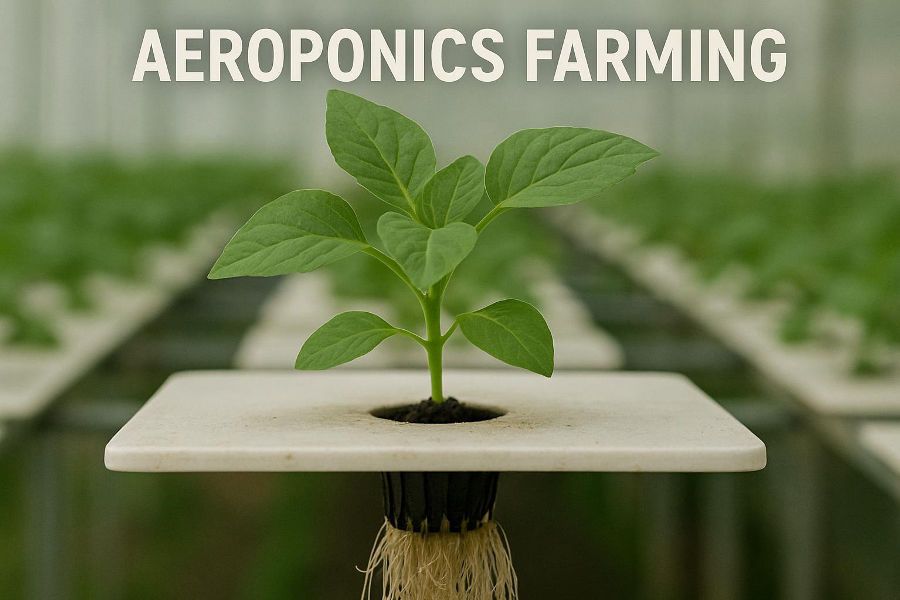Aeroponics: The Future of Soil-less Farming
Aeroponics is an advanced method of growing plants without soil, where roots are suspended in air and sprayed with a nutrient-rich mist. This modern technique is part of precision agriculture and is ideal for growing high-value crops like lettuce, herbs, strawberries, and even potatoes in controlled environments.
How Does Aeroponics Work?
-
Plants are supported in frames or towers.
-
Roots hang freely in air inside a closed chamber.
-
A mist of water mixed with nutrients is sprayed on the roots at regular intervals.
-
Light, temperature, and humidity are carefully controlled.
Advantages of Aeroponics
-
Uses 90% less water than traditional farming.
-
Faster growth due to direct oxygen and nutrient absorption.
-
No soil-borne diseases, leading to healthier plants.
-
Ideal for urban and indoor farming with limited space.
-
Easy to monitor and automate.
Challenges
-
High initial setup cost and requires technical knowledge.
-
Power and equipment dependency—system failure can damage crops quickly.
-
Not suitable for all types of crops.
